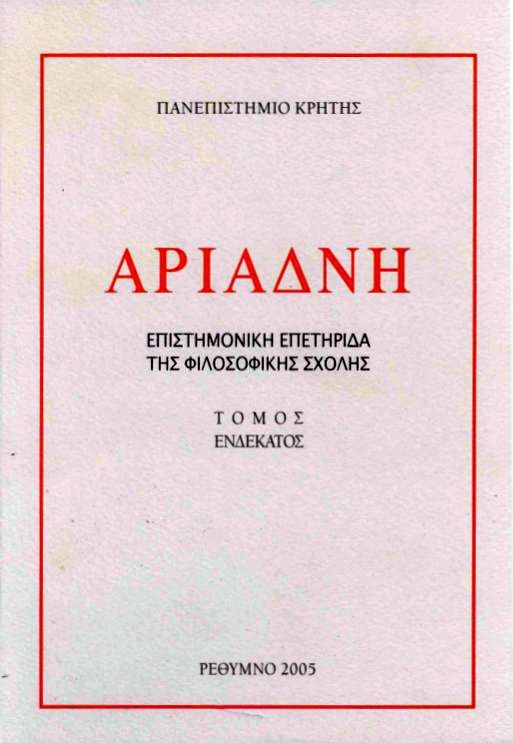Ο θρήνος στους Πέρσες του Αισχύλου: οι απαρχές του επιτάφιου λόγου
DOI:
https://doi.org/10.26248/ariadne.v11i0.974Περίληψη
Aeschylus in his Persae attributes all lament songs to men, although in most tragedies lament songs are in close relation to women. This is due to the fact that the chorus comprises barbarian males and the origin of lament songs is related to Asia, as style, words, interjections and gestures indicate. Moreover, a comparison between Persae's lament songs and Lysias' Funeral Oration, which was delivered by men as public expression of mourning, brings to light a number of resemblances. Ιn contrast to most tragedies, in which the female private expression of grief is emphasized, in the Persae, as in the funeral oration, the public male expression of mourning takes precedence and two characteristic elements are presented: the catalogue of the war dead, which recalls the similar catalogues of war dead inscribed οn stone and put οη public display at Athens, and the motif of the destruction of lands or cities, a peculiarity of this tragedy. Thus, it is probable that the Persae may be viewed as a nascent funeral oration, the male form for the expression of mourning in Athens, where Aeschylus' tragedy was performed.
Λήψεις
Δημοσίευση
Πώς να δημιουργήσετε Αναφορές
Τεύχος
Ενότητα
Άδεια
Οι εργασίες που δημοσιεύονται στο περιοδικό μπορούν να χρησιμοποιηθούν ελεύθερα για μη-εμπορικούς σκοπούς με την προϋπόθεση ότι γίνεται αναφορά στους συγγραφείς και την πρώτη δημοσίευση. Στην περίπτωση που το άρθρο αλλοιωθεί, τροποποιηθεί ή δημιουργηθεί κάτι νέο βασισμένο στο αρχικό, το έργο που θα προκύψει θα μπορεί να διανεμηθεί μόνο με την ίδια ή παρόμοια άδεια (Creative Commons Attribution-NonCommercial-ShareAlike 4.0 International License).


